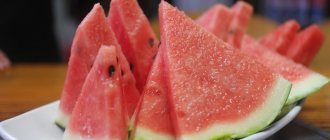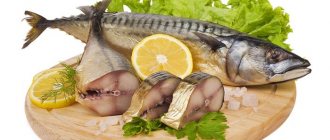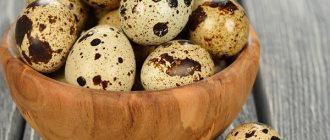The period of breastfeeding is characterized by all sorts of prohibitions, including those regarding food. After all, any product can affect the quality of milk and cause negative reactions in the child. A very common question among women is whether a nursing mother can eat melon? Let's figure it out.
Where do these concerns even come from? Young mothers are justified in their doubts, because in addition to the beneficial properties that fruits in general and melon in particular have in abundance, there may also be negative effects. And given the not always high quality of products on our market, these fears intensify even more.
The benefits of melon for the body
Melon is a nutritious, healthy fruit crop that is actively used during weight loss. It contains:
- calcium;
- folic acid;
- fiber - stabilizes stool and improves digestion processes;
- vitamin A;
- sodium;
- ascorbic acid;
- tocopherol;
- magnesium;
- nicotinic acid;
- carbohydrates - improve mood, give strength;
- iron - stimulates blood renewal;
- potassium;
- iodine.
This composition has a beneficial effect not only on the body of those losing weight, but also on any person. Eating melon during lactation energizes the nursing mother and helps strengthen hair and teeth. At the same time, the intake of a small amount of melon into the child’s body along with mother’s milk will also have a positive effect.
Useful properties of melon
The composition of melon and its beneficial properties may vary slightly depending on the variety. The fruit pulp contains vitamins B1, B2, B5, B6, B9, PP, H, E, C, A, K, folic acid, calcium, zinc, manganese, magnesium, iron, iodine, copper, sodium, phosphorus, fluorine, pectins, sugar (about 16-20%).
The composition of the fruit determines the presence of the following beneficial qualities:
- increasing the elasticity and general condition of the skin;
- improved mood;
- hair strengthening;
- normalization of the digestive tract, improvement of the process of food digestion;
- replenishment of energy deficiency;
- increasing the elasticity and strength of blood vessels;
- increased intestinal motility;
- reducing the concentration of bad cholesterol in the blood;
- normalization of metabolic processes;
- rejuvenation of the body;
- strengthening the central nervous system;
- reducing swelling and cleansing the body of toxic compounds due to a mild diuretic effect;
- improving the quality of vision;
- improvement of blood composition;
- strengthening the immune system.
Melon is a dietary product: 100 grams contain only 33-34 kcal.
Recommendations
To prevent the development of various negative consequences, melon should be properly introduced into the diet. Experts do not advise enjoying the juicy fruit until the baby is three months old. This means you shouldn’t take risks and eat the product so as not to harm the newborn’s body. And at 4 and 5 months you can eat this sweet crop without fear.
Why is the period set at 3 months by specialists? The fact is that during this period, intestinal function improves, and any changes in the mother’s diet can negatively affect the baby’s condition.
You can eat melon during breastfeeding only when the child is 3 months old
Some experts advise not to introduce the product into the diet until the baby is 6 months old. Such a ban is not mandatory for everyone due to the individual characteristics of the body.
Melon should be introduced into the diet gradually and only if the baby is completely healthy. To start, eat a little melon in the morning, then monitor your baby’s reaction throughout the day. If the child has no anxiety, rashes or worsening stool, eat 2 pieces of melon the next day and monitor the baby. If nothing has changed in his health or behavior, then you can eat the product without fear. It is important not to try new dishes at this stage.
If your child experiences allergic rashes, bloating, diarrhea, or restlessness, refrain from eating melon. Try reintroducing the product after 2 weeks. If negative consequences appear again, repeat the introduction of the product only after 1-2 months.
Selection and inclusion in the diet
Watermelon and melon are useful during lactation, but do not forget that in addition to the ripe fruit, you should remember the rules for introducing the product into the diet.
How to choose the right melon:
- It is recommended to eat melons during the summer season. Ripe fruits contain a minimal amount of nitrates.
- Select whole melons, without rot, cracks or spots. Cut slices contain harmful microorganisms and lead to poisoning.
- The peel should be dense, with a uniform yellow color, the tail should be dry.
- You shouldn't buy a melon if it's lying on the ground. Each fruit should be placed on a wooden pallet.
- The aroma should be light, barely noticeable.
Melon is not recommended for use during breastfeeding earlier than 5 months after birth. Start with one small piece a day, be sure to monitor the reaction of the body of the mother and the newborn.
When a child experiences itching, redness of the skin, changes in stool or bloating, it is necessary to remove the new product from the diet for the next month. If no symptoms appear, you can safely eat one piece a day. For large rashes, you need to contact your pediatrician and get tested for allergenic foods.
Contraindications
Illiterate consumption of melon can negatively affect both the well-being of the woman and the child. Melon culture can cause the following consequences:
- Allergic reaction - there is a high probability that melon will cause diathesis in the baby.
- Increased gas formation, bloating - the product contains a large amount of fructose, which can trigger fermentation processes in the intestines.
- Diarrhea - melon has laxative properties, as a result of which the baby may experience an upset stomach.
- The risk of poisoning is no secret that when growing melons, many farmers use chemicals, which can result in poisoning. Melon must be purchased only from trusted sellers.
- Excessive consumption of the product can cause excess weight gain. This is important to take into account for those mothers who strive to return to their previous shape as quickly as possible.
- It is not recommended to eat berries for those who have stomach problems (gastritis, ulcers). It is also necessary to avoid melon if you have an intestinal disorder.
- Melons are ideal as a dessert. But, according to nutritionists, they should not be mixed with other products. Do not combine melon with bread or foods that cause fermentation in the intestines. It is forbidden to drink water after eating melon, as this can cause vomiting and diarrhea.
Based on this, the answer to the question: can a nursing mother eat melon does not have a clear answer. It all depends on the individual characteristics of the body of the baby and the mother.
Proper introduction of melon into the diet will protect you from many negative consequences.
Contraindications for use
Despite the presence of many beneficial substances, melon can be harmful to some people. This is due to the fact that it can worsen the course of a number of diseases.
Melon should not be consumed under the following conditions:
- diabetes;
- pancreatitis;
- enterocolitis;
- cholecystitis;
- obesity;
- individual intolerance to the product;
- infectious and inflammatory diseases of the gastrointestinal tract;
- peptic ulcer.
A woman can exclude or confirm the presence of contraindications after undergoing an examination.
Rules for choosing melon
In order to maximize the benefits of using the product, you need to learn how to choose the right melon. For this:
- Buy melon no earlier than mid-August, since melons ripen only closer to autumn. Products that appeared on the market earlier than this date were grown with large amounts of chemical fertilizers. Such supplements often cause intoxication in adults, and if such melon enters the body of a newborn along with milk, the consequences can be unpredictable.
- For a nursing mother, you need to buy only ripe melon - it is easier to digest by the body, sweet and aromatic. To determine ripeness, tap the surface of the product with your knuckles. If the sound is dull, then the melon is fully ripe. The aroma of ripe melon is sweet and fresh. If the berry does not emit any odor, it is better not to buy it.
- Don't buy cut or whole cracked melon. Bacteria that have entered the product through cracks or settled on the surface can cause diarrhea and poisoning in mother and child.
- Do not buy melon with dark spots, as these may indicate the beginning of spoilage of the product.
By following these simple rules, you can be sure that you are buying a quality product that will not harm either you or your child.
How often and how much to eat
The golden rule for the presence of melon during breastfeeding is careful, gradual adaptation. For the first time, mother is allowed to eat no more than 100 g of sweet pulp. After the starting test, you need to monitor the baby’s reaction. If no allergic rashes appeared within 2-3 days, the child slept soundly, did not act up more than usual, and had normal stools, you can continue eating melon. Gradually, the amount of sweet fruit is increased to 2-3 slices per day. A harmless daily dose is 300 grams. Frequency of use: 1 time per week.
The best time to eat the product is the first half of the day. Combining it with other dishes is dangerous for digestion, so you should wait about 2 hours after breakfast. This mode of use will allow a nursing woman to better feel her well-being and monitor the condition of the child.
Melon is absolutely not suitable for evening snacks. It takes up to 6 hours to digest it. Therefore, eating it before bed threatens to result in heaviness in the stomach and indigestion.
How to use
When nutritionists are asked whether a nursing mother can eat melon, they do not voice strict prohibitions. It is better not to try to combine the product with other ingredients; there is a high probability of running into incompatible combinations.
As a standalone product
The most popular way to eat melon while breastfeeding is in its original form. There are no restrictions regarding varietal diversity. It is believed that round-shaped crops with a rich yellow or orangeish core provide greater gastronomic delight. Oblong varieties have a denser structure, contain slightly less sugars, and, therefore, are safer for the figure.
The peak concentration of nitrates is concentrated in the area near the skin of the melon. Therefore, it is better for a nursing mother to choose a piece as close as possible to the core.
In combination with other products
During breastfeeding, melon can be combined with fruit. It is used to prepare smoothies, fresh juices, salads, and non-alcoholic cocktails. It is forbidden to use yellow melon as a filling in baked goods. In combination with the dough, it triggers strong fermentation, causing discomfort for mother and child.
Juicy pulp cannot be combined with:
- chicken, beef and other less healthy types of meat;
- fish:
- seafood;
- bird;
- eggs;
- milk;
- fermented milk products;
- cold water;
- yogurt;
- alcohol.
One of the common mistakes of first-time mothers is dressing fruit salads with melon with natural yogurt or ice cream. Although from a gastronomic point of view the result will please, there will be a bitter retribution in the form of long diarrhea.
Reviews
Below are reviews from women about eating melon during lactation.
Victoria, 25 years old
I have loved melons since childhood. After giving birth, I doubted for a long time whether it was worth eating it or whether it was better to wait a year. I tried melon for the first time when the child was a month old, he had no allergies or deterioration in his health. Of course, I ate a little, 1-2 pieces at a time.
Valentina, 31 years old
When the child was 2 months old, I decided to eat some melon. In general, I don’t really like her, but that time I couldn’t restrain myself. After I ate 3 pieces of sweet berries, the child developed bloating and diarrhea. I have nothing against this product, but I still think that it is better to abstain from it during lactation.
When breastfeeding, it is advisable to eat melon only when the baby is 3 months old. In this case, the product must be introduced into the diet gradually. We hope that our article was useful to you! Subscribe to our official pages on social networks, bookmark the site to stay updated on new articles!
Is it possible for a nursing mother?
During lactation, it is important for a woman to adhere to a certain diet. Cakes, pastries, and chocolate are prohibited for young mothers. Instead, you are allowed to eat sweet fruits and berries.
Melon is one of many people's favorite foods. During the heat, it tones up, quenches thirst well, and belongs to the plants of the pumpkin family, melons and melons.
The homeland of melon is Asia Minor and Central Asia. Today it can often be seen in the garden beds. The crop grows best at higher elevations in warm regions. Many women are interested in whether melon can be consumed while breastfeeding a newborn.
The ripe fruit has a pleasant aroma and sweet taste. Most doctors, including the famous pediatrician Evgeniy Olegovich Komarovsky, do not prohibit eating melon during lactation. But experts warn that it is not worth introducing it into the diet immediately after childbirth.
This is associated with a high risk of developing unwanted reactions in the child. Doctors advise eating fruits after subjecting them to heat treatment. There are many recipes, one of the ingredients of which is melon.
The fruit, if well tolerated and consumed in moderation, will only benefit the mother:
- will prevent the development of postpartum depression;
- will give a boost of energy;
- stimulates lactation;
- saturates the body with vitamins and minerals;
- will improve the condition of the skin and hair.
With breast milk, all the components of the foods that a woman eats enter the baby’s body. Therefore, the mother’s inclusion of melon in her diet will have a good effect on the child: it will strengthen the immune system and improve digestive processes.
It is recommended to ask your doctor whether a nursing mother can eat melon. The fact is that there are a number of conditions under which this fruit should not be eaten.











